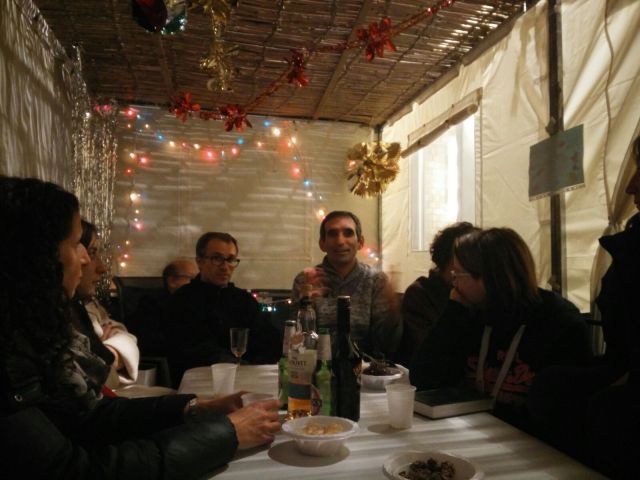Avi Dabush
We are in the throes of the Tishrei festivals. The day of judgement has passed, the ten days of repentance and Yom Kippur are over and now it is Succot, in which it is said “And you shall rejoice in your holidays and be particularly happy” (Deuteronomy 16:14-15). This is the time for joy and for recognizing the good in what we have.
Succot entails leaving the illusion of security that our permanent homes grant us, in favour of the “temporary dwelling”: the succah. This is an excellent time for us to call into question everything that we surround ourselves with. It is appropriate for us to remember that we are privileged if we possess a permanent home. We are protected from cold and from heat. We enjoy personal and familial privacy. We can imagine an eternal state from within our temporary lives. We can relax in the knowledge that in general, things are in their place and we are blessed with people and possessions that we love.
But we don’t all have such a privilege. In Israel almost a quarter of all people are defined as poor and a large number struggle to put a reasonable roof over their heads, not always successfully. The fight against poverty is an important one that connects dozens of organizations and community groups in Israel, coordinated by Shatil, the New Israel Fund’s operational arm, within the “Forum for the Struggle Against Poverty”.
It is appropriate during Succot to remember the temporary nature of our personal and communal lives. If we lock ourselves behind concrete walls all our life, we will not succeed in connecting to the dynamism of life. Judaism recognizes the value of stability and the security of permanence, but also reminds us of the need for renewal and the importance of connecting to the aspects of life which are in flux. Our sages told us in Pirkei Avot “know from whence you came and where you are going” (3:1). Stepping out into the vulnerability of the succah, which shakes from every gust of wind and is intrinsically connected to nature and the seasons, connects us with aspects of life from which we are generally disconnected the rest of the year round.
This is on a personal and family level, what about the communal and national levels?
We can attempt to stay behind stone walls all our lives. Ehud Barak said, two decades ago, that Israel is a “villa in a jungle”. If times are hard – and they surely are right now, then maybe it’s worth making do with entrenching ourselves in a narrative of security threats, at the expense of social and cultural prosperity. That’s one way. There is also another way that Judaism proposes: not to balk from difficulties, challenges or dangers. “And you shall keep them upon your souls” our sages said (Babylonian Talmud, Shabbat 32a). At the same time, however, we mustn’t close ourselves off and imprison our social and spiritual strength by chasing threats and putting out fire.
Going out into the succah and inviting the ushpizin – our guests, into it, is an expression of our ability to be open to the dynamism of life. Dynamism invites dangers, but also opportunities. Responsible connection to dynamism is the only way to create prosperity and growth. We know this from life. Whoever hides away, shies away from things and doesn’t connect to his or her surroundings, is destined to be trapped inside themselves. “In partnership or in death” said Choni haMa’agal (Babylonian Talmud, Taanit 23a). We choose life. We chose to sit in the succah, metaphorically or literally. We chose growth and not closing ourselves off. Through forging a path of social and economic justice, through openness and fighting against racism, and by consistent support of the most crucial concept of Judaism: peace.
Chag sameach to all!
Avi Dabush is Director of Programmes at Shatil, NIF’s initiative for social change. You can listen to him speak about Israel’s grassroots movements on our latest podcast episode here.

